- Home
- E. M. Foner
Vacation on Union Station (EarthCent Ambassador Book 7) Page 8
Vacation on Union Station (EarthCent Ambassador Book 7) Read online
Page 8
“Banger will bring in Sam and Ailia on time,” Joe said. “They were only one hedgerow to the left last time I checked, and I see them coming through the turnstile as we speak.”
“I don’t understand why they have turnstiles between the different gardens,” Kelly complained. “It spoils the whole effect.”
“Kind of like a museum or something,” Joe agreed. “Maybe they want to count the visitors.”
“I haven’t seen Dorothy or Mist for a while. Aren’t you going to whistle for Beowulf or something?”
“Something,” Joe replied, removing from his pack a bag of pretzels delivered from the Just Like Home snacks store in the Little Apple.
“You think Beowulf can smell pretzels?”
“I won’t even have to open them.” Joe held the bag over his head and crinkled it once or twice. The sound created by the oriented polypropylene plastic was unique to the galaxy of human salty snack bags, and a moment later, Beowulf came bounding over a hedge that was taller than Kelly.
“Good ears, boy,” Joe said. “Now what did you forget?”
Beowulf hung his head for a moment, and then took a running start to clear the hedge a second time and go back for the girls.
“Delivery,” a voice called behind them. The McAllisters turned to see Clive and Blythe emerging from the fat tree trunk.
“Do you guys think you’re elves or something?” Kelly asked. “Where are the twins?”
“With my mom,” Blythe replied. “You didn’t find the table?”
“Nice camouflage,” Clive said, admiring the artificial tree they had arrived in. “I don’t remember ever seeing a lift tube disguised like this before.”
“Where’s the food?” Joe asked.
“Oops,” Clive said. He reached back into the capsule and pulled out a floating caterer’s food chest emblazoned with the Pub Haggis artwork. “Ian pinged us this afternoon. He had a fancy Condolence Meal cancel, turned out the guy wasn’t really dead, so he’s been trying everybody he knows to take some of it off his hands. We made a deal with Libby to deliver in return for covering our share.”
“I didn’t realize that you were economizing,” Kelly said.
“Well, what with paying for Woojin and Lynx’s honeymoon and all…” Clive began.
“Stop it,” Blythe cut him off. “I don’t know what’s gotten into him lately, but he likes pretending that we aren’t rich. I think he’s trying to set everybody up for a card game or something.”
“Have you heard from Wooj?” Joe asked. “They left right after the wedding and we started on vacation the next day.”
“They already submitted a report about the independent human communities on Chianga, a Dollnick open world,” Clive replied. “Sounded like the humans have gone native and Woojin went native with them. Lynx said something about getting a divorce if he tries eating any faux-Dollnick delicacies in front of her again, but you know how newlyweds are.”
“And how’s Thomas doing with the training camp?” Joe followed up. “The new group of recruits must have started a few days ago. I’ve sort of lost track.”
“That’s what you’re supposed to do on vacation,” Blythe said over her shoulder, as she rooted around in a dense patch of vines growing on an elaborate arbor. “Just where Libby said they’d be. Give me a hand with these.”
Blythe removed a tubular bag from the hidden space, handed it to Kelly, and then rapidly extracted seven more. Kelly passed each bag on to Joe, who tossed them to Clive. The last bag was much heavier, and Blythe’s head and upper body vanished into the vines as she wrestled it out.
“What is all this stuff?” Kelly asked.
“Furniture,” Blythe explained. “This one must be the table.”
When the smaller bags were opened, the carbon fiber and fabric chairs practically unfolded themselves on being extracted. The table was another story, but with one adult pulling on each corner, it finally snapped into shape, providing a taut fabric surface that barely budged when Samuel climbed onto it and started jumping.
“Samuel McAllister!” Kelly said in dismay. “That’s our dinner table you’re jumping on.”
“I thought it was a trampoline,” he replied innocently.
“Off,” Joe said, grabbing his son mid-bounce and putting him down on the deck. “Remember to ask Libby where she dug this stuff up,” he added in an aside to his wife. “I might buy a set for the Nova, in case we ever get to go anywhere again.”
“Hi Aunty Blythe, Uncle Clive,” Dorothy called as she approached with Mist. Beowulf conscientiously herded the girls forward, his eyes on the pretzel bag. “Did you meet any of the ghosts?”
“How would I know if I did?” Blythe asked. “I thought they were invisible.”
“Not these ghosts,” Dorothy said. “And they can talk and talk, but in the end they don’t say anything.”
“They think a lot of themselves,” Mist added.
“As long as they don’t eat, they’re fine by me,” Clive said. He began unpacking food from the insulated chest and setting it on the table. “I hope these pastry things are the same as the ones at Lynx’s wedding.”
“That would make them nine days old,” Blythe cautioned him. “You know Ian hates to throw away food.”
“Can I have Thomas do the ceremony when I get married?” Dorothy asked.
“You’ll have to ask him,” Kelly replied. “Lynx said he even rented an ecumenical personality upgrade from QuickU to get into the spirit of the thing.”
After dinner, the children started a game of hide-and-seek, and adults shared a couple of bottles of wine.
“Can you really believe you’re starting your second week on vacation?” Blythe asked Kelly. “When’s the last time you even talked to Libby?”
“Eight days ago,” Kelly said mournfully. “She told me that to get the full benefit of the vacation I shouldn’t talk to her or ask anybody about EarthCent. I guess it’s working because I haven’t really thought about the embassy in days. There’s nothing I need to know about, right?”
Clive and Blythe exchanged a private glance. “Right,” they both said at the same time.
Eight
“So you’re volunteering to help overthrow the Stryx hegemony?” Walter looked Jeeves up and down. “Could I ask what kind of AI you are, exactly?”
“Well, Stryx,” Jeeves admitted. “But don’t let that and the robot-body fool you. I’m more human than most humans I’ve met.”
“And you believe that humans have the right to free and democratic elections for the purpose of establishing our own government?”
“Absolutely. I’ve always felt that my elders put too much emphasis on knowledge and experience and not enough on personality,” Jeeves asserted. “A million years here, a million years there, that’s the Stryx way of looking at things. We’re almost as bad as the Makers.”
“It seems highly irregular,” the HEEL organizer muttered, almost to himself. He paused to look around at the other members of his ad hoc democracy committee who were gathered around Kelly’s display desk in the EarthCent embassy. “I don’t have any personal objections, of course, but I want to make sure the rest of you are comfortable with—are you sure he’s not here to spy on us?”
“I wouldn’t have invited Jeeves if I didn’t trust him implicitly,” Shaina said. “We’ve been business partners for years, and he went to school with Paul, the ambassador’s foster son. Besides, who do you think he’s going to spy on us for? The Hortens? The Vergallians?”
“Well, the Stryx,” Walter said in exasperation. “Don’t they make a lot of money by keeping humanity on a short leash?”
Everybody in the room except for the HEEL organizer burst out in laughter.
“Libby,” Daniel said. “Can you show us a balance sheet for the Stryx dealings with humanity?”
“Of course,” the librarian replied over the office speakers, causing Walter to twist in his seat and look around wildly. An array of colored spheres appeared floating over the d
isplay desk, each revolving slowly to display its label. “The sizes of the spheres show the relative amounts of the subsidies involved versus true market rates. The label on the little white sphere may be too small for you to read, but that’s the budget for all of EarthCent’s diplomatic operations.”
“What’s the military assistance item?” Clive asked, leaning forward in his seat to study the data.
“It’s an implied expense,” Libby replied. “It’s the money humans are saving every cycle by not maintaining a military while Earth is under our protection. Jeeves said I shouldn’t include it since you never asked for our help, but Gryph overruled him.”
“See?” Jeeves said, to nobody in particular.
“How about the second biggest one, the tunnel freight subsidy?” Walter asked. Although he was still in a bit of shock at the sudden intrusion of a number of Stryx advisors to his meeting, you don’t make it through a doctoral program at one of Earth’s most renowned schools without learning how to cope with verbal sneak attacks. “I heard that the Stryx assess a special tithe on all Earth exports while the other species only pay fixed fees.”
“Earth wouldn’t have an export industry without the Stryx tunnel subsidies,” Shaina explained. “The value of Earth goods isn’t enough to pay the standard fees the Stryx charge the other species. And that doesn’t even take into account the relatively low capacity and poor efficiency of the ships humans are able to acquire, mainly through Stryx-subsidized loans. Instead of charging for mass and volume, the Stryx take a percentage of the profit. Earth is actually the only planet in the galaxy that can afford to export certain bulky, low-value products, like tissues and toilet paper.”
“So what do all the aliens do without toilet paper?” Walter couldn’t help asking.
“He’s never even been in an all-species bathroom,” Shaina said, her face breaking into a wide grin. “Don’t you spoil it for him, Daniel,” she added, seeing that the helpful junior consul was about to explain.
“So in round figures, how much do all of these subsidies come to?” Walter asked, trying to show that he wasn’t embarrassed by his lack of travel experience. “How big of a bill will the Stryx be presenting when we go out on our own?”
“This isn’t a bill or even a running tab,” Libby replied patiently. “Daniel asked for a balance sheet, and currently, humanity is in the red. The numbers would be a little larger if not for the profit some Stryx earn in business relationships with humans, like my own participation in InstaSitter. When humanity progresses to the point that the subsidies are no longer required, they’ll be phased out.”
“Forgive me if I seem a little skeptical, but I attended an international academic conference on human exploitation by aliens just last year, and none of this came up in the papers presented,” Walter said. “Are you suggesting that even if we vote to close EarthCent and establish our own galactic government, you won’t seek repayment?”
“Hang on a second, Walter,” Daniel objected. “I don’t want to sound like an apparatchik, but I don’t see why you’re in a hurry to close EarthCent. Humanity doesn’t pay our salaries, we don’t tell anybody what to do, and we’re not a barrier to humans developing self-government.”
“But everybody thinks of you as the government,” Walter protested.
“Everybody who?” Clive replied, struggling to hold back his laughter. “The aliens all think that EarthCent is some sort of glorified tourist agency for Earth, and most humans have probably never heard of us, much less seen an EarthCent employee. The only place anybody could possibly mistake EarthCent for a government is on the Stryx stations, and that’s only because the ambassadors sponsor events and dip into petty cash to give hand-outs to stranded human travelers.”
“Listen,” Daniel said. “I’m sorry that none of the others from the last meeting showed up, but people on the station are pretty busy. EarthCent Intelligence has sent a couple agents on a fact-finding mission to the human communities starting local governments, and we’ll be happy to share that information with you when they return. Personally, I’m fascinated by the concept of elections and I’m willing to help, but I need to believe that there’s a point to the whole thing.”
“I’m interested even if there isn’t a point,” Jeeves said.
“Let me show you the materials I received,” Walter offered, abandoning the idea that he could simply talk his small audience around to his point of view. He reached into the large duffle bag made of a tough rug-like material that he’d deposited in front of his seat and began to rummage around. “It’s not all that original, that’s the way it is with universal truths,” he added apologetically, pulling out a large coffee mug and placing it on Kelly’s display desk.
“No taxation without representation,” Daniel read aloud. “What taxation?”
“Well, I guess the tunnel tithes,” Walter replied, looking embarrassed.
“After Libby explained that the Stryx lose money on human tunnel traffic and that they pay for EarthCent as well?” Shaina objected. “Humanity has no taxation and free representation under the current deal.”
“But that was my favorite,” Walter said, looking at the mug sadly. He started rooting through his carpetbag again and pulled out another mug, this one printed with, “One man, one vote.”
“I don’t get a vote?” Shaina inquired in an icy tone.
“What about human-identifying sentients?” Jeeves inquired.
“They mean ‘man’ in the universal sense, for humankind, I think,” Walter replied. “I did hear back from headquarters on the artificial person’s question, and the answer was that human-created AI is welcome. I guess I’ll have to ask about you now,” he added, turning to Jeeves.
“I realize that a lot of humans like hot drinks, and I know I don’t have any expertise in organizing elections, but I think you need a way to get people to show up so you can give them the mugs,” Clive said. “How large was the shipment?”
“Just samples. These two and bunch with sort of violent slogans that didn’t make any sense to me,” Walter admitted. “But I have a budget to get them printed here on the station. You said your family works in the Shuk, Shaina. Do you have any idea how many printed mugs I could get for ten thousand creds?”
“Ten thousand creds?” she repeated in astonishment. “You could get tens of thousands. The Frunge do them for a few hundred millicreds, but I don’t know where you’re going to store them. What’s your overall budget?”
“Two hundred thousand to start,” the HEEL organizer said. For the first time, it was Union Station dwellers who appeared shocked. “What? Is that a lot?”
“That’s a huge amount of money for the local rep of a political movement that’s coming out of nowhere,” Clive told him. “Maybe your budget is larger than the other organizers for some reason, but we’ve already heard that HEEL agents are showing up on all of the stations with a large human presence, on every world with an EarthCent embassy, and on some of the open worlds as well. If your budget is typical, that means there are tens of millions of creds involved.”
“What does HEEL hope to accomplish with all that money?” Daniel asked, leaning over the corner of Kelly’s display desk to look into Walter’s bag of goodies. “Didn’t you get any position papers, or holo-cube presentations, or survey data?”
“There’s a bunch of numbered cube-things but I didn’t know how they worked,” Walter replied. “I was going to ask you after the meeting.”
“Find number one,” Daniel instructed him. “Just throw it at something hard, like the floor or the wall.”
“Or me,” Jeeves suggested. “Anything for the cause.”
Walter identified the first holo-cube in the series, looked at Jeeves, and then threw it against the wall. A hologram featuring a beautiful woman wearing a partial face mask appeared immediately. She looked like she was dressed for a high-society ball.
“Welcome to the Human Expatriates Election League orientation course,” she purred in a husky contralto. “Th
ese cubes contain everything you’ll need to know to establish a grass-roots organization that will bring about the transition from an EarthCent dictatorship to a representative democracy. If you need to reorder any of the segments to show your staff, please specify the number of the cube.”
The holographic figure turned and began walking down a long corridor, causing the viewers to feel they were being drawn deeper into the content. Strains of unidentifiable music swelled as the actress or instructor reached a large metal door and pushed a button in its center. The door disappeared and the perspective suddenly changed, showing the woman standing in front of a large crowd in an amphitheatre.
“Nice effect,” Shaina commented. “Haven’t seen that one before.”
“Democracy can be messy,” the HEEL instructor said. The crowd in the amphitheatre all began to shout at each other. “And noisy,” she continued without raising her voice, yet somehow they still heard her clearly over the vociferous if indistinct arguments. “But the payoff for choosing a representative form of government can be immense.”
A bird’s-eye view of a beautiful villa on a picture perfect coastline replaced the amphitheatre, and the perspective zoomed in towards a figure in a chaise lounge, a drink with an umbrella in one hand. It was the same woman, still with the mask.
“In the next holo-cube, I’ll show you how to establish a network of volunteers who answer directly to you. As these volunteers enlist their own downliners, your status in HEEL will grow, and when elections are held, you’ll find yourself transformed from an organizer into a representative. So, congratulations for getting in on the ground floor, and I’ll see you in the next cube.”
“That was weird,” Shaina said, as the hologram winked out. “It reminds me of a presentation I saw when I was just a teenager and my sister and I wanted our father to add cosmetic products to Kitchen Kitsch. The company I contacted sent a whole holo-cube course on selling their products, but it turned out to be more about finding other people to sell their products and taking a commission from their sales, and on the sales of their downliners,”

 Last Night on Union Station (EarthCent Ambassador Book 16)
Last Night on Union Station (EarthCent Ambassador Book 16)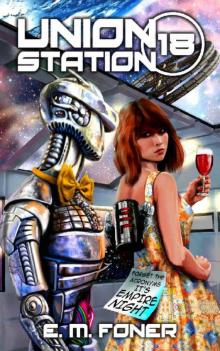 Empire Night on Union Station (EarthCent Ambassador Book 18)
Empire Night on Union Station (EarthCent Ambassador Book 18)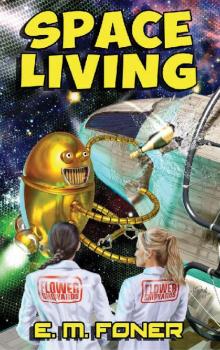 Space Living (EarthCent Universe Book 4)
Space Living (EarthCent Universe Book 4)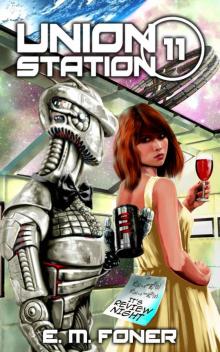 Review Night on Union Station (EarthCent Ambassador Book 11)
Review Night on Union Station (EarthCent Ambassador Book 11)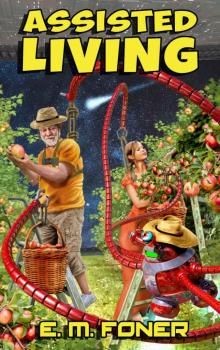 Assisted Living
Assisted Living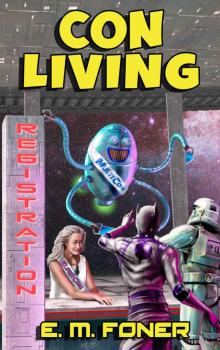 Con Living
Con Living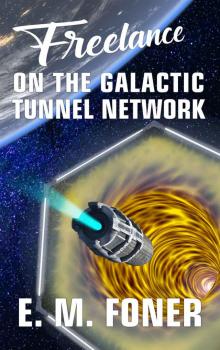 Freelance On The Galactic Tunnel Network
Freelance On The Galactic Tunnel Network Career Night on Union Station
Career Night on Union Station Career Night on Union Station (EarthCent Ambassador Book 15)
Career Night on Union Station (EarthCent Ambassador Book 15)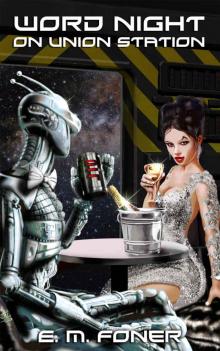 Word Night on Union Station (EarthCent Ambassador Book 9)
Word Night on Union Station (EarthCent Ambassador Book 9)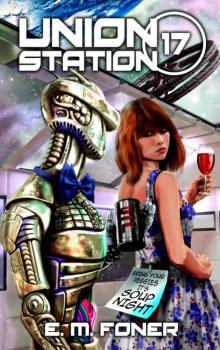 Soup Night on Union Station
Soup Night on Union Station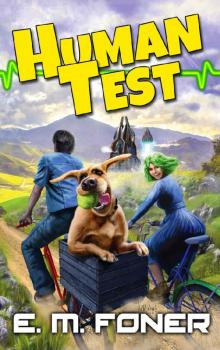 Human Test
Human Test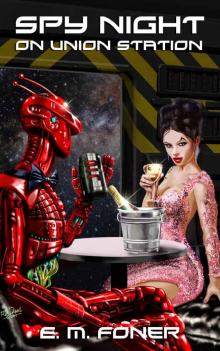 Spy Night on Union Station (EarthCent Ambassador Book 4)
Spy Night on Union Station (EarthCent Ambassador Book 4)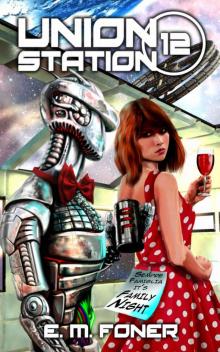 Family Night on Union Station (EarthCent Ambassador Book 12)
Family Night on Union Station (EarthCent Ambassador Book 12) Party Night on Union Station (EarthCent Ambassador Book 10)
Party Night on Union Station (EarthCent Ambassador Book 10)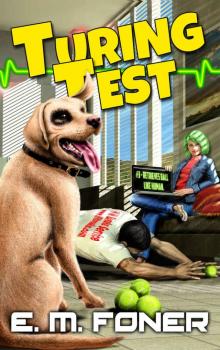 Turing Test
Turing Test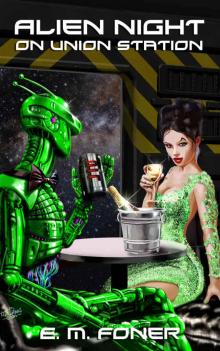 Alien Night on Union Station (EarthCent Ambassador Book 2)
Alien Night on Union Station (EarthCent Ambassador Book 2) Wanderers On Union Station (EarthCent Ambassador Book 6)
Wanderers On Union Station (EarthCent Ambassador Book 6)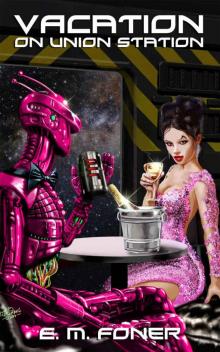 Vacation on Union Station (EarthCent Ambassador Book 7)
Vacation on Union Station (EarthCent Ambassador Book 7)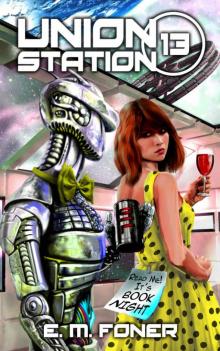 Book Night on Union Station (EarthCent Ambassasor 13)
Book Night on Union Station (EarthCent Ambassasor 13) LARP Night on Union Station
LARP Night on Union Station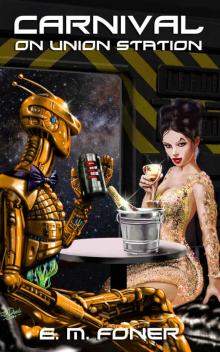 Carnival On Union Station (EarthCent Ambassador Book 5)
Carnival On Union Station (EarthCent Ambassador Book 5) LARP Night on Union Station (EarthCent Ambassador Book 14)
LARP Night on Union Station (EarthCent Ambassador Book 14)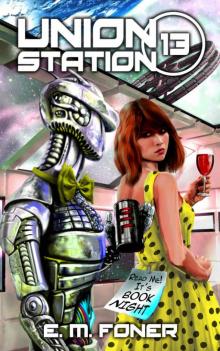 Book Night on Union Station
Book Night on Union Station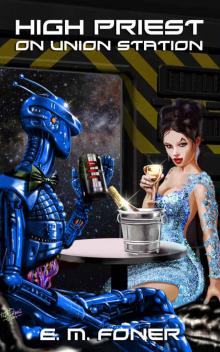 High Priest on Union Station (EarthCent Ambassador Book 3)
High Priest on Union Station (EarthCent Ambassador Book 3)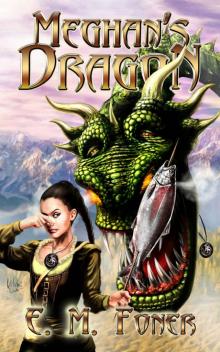 Meghan's Dragon
Meghan's Dragon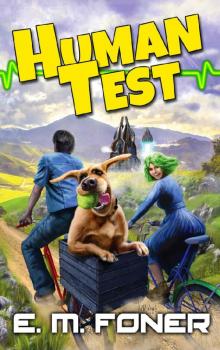 Human Test (AI Diaries Book 2)
Human Test (AI Diaries Book 2)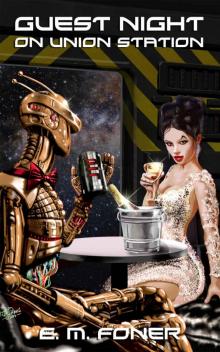 Guest Night on Union Station
Guest Night on Union Station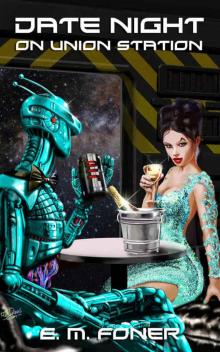 Date Night on Union Station
Date Night on Union Station